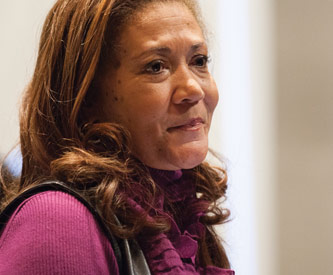Four Questions For: NPR's Michele Norris
1. How has your work in recent years—writing your memoir, The Grace of Silence, and running The Race Card Project—informed your style of storytelling?
In journalism, there still are rules that you need to follow. But after years of avoiding the word “I” in journalism, when I wrote my book about my family’s rather complex racial legacy, it crossed that line, and in doing so, it allowed me to open the door for the Race Card Project, where other people were telling their stories—not talking about race in the abstract but in the first person.
2. From Trayvon Martin to Jordan Davis, race is often a big part of conversations in the public sphere. How do those public conversations shape the dialogue happening though The Race Card Project?
The public conversation is often driven by events like the ones you mentioned, but what I see in the inbox is much more private. People are talking about their own experiences and observations. And it’s a much more intimate experience—the little, small moments that often have a very big impact on the way we experience race, or the way that we observe our own racial identity.
3. Through The Race Card Project, have you been compelled to think about forms of identity in different ways?
Very much so. Our submissions are about the frame of identity, and that frame is very different for lots of different people. For some of them it’s the immigrant experience, for some of them it’s the color of their hair, for some of them it’s age or gender, or the fact that they speak with a Southern accent, or the fact that they speak with an accent that is still redolent of their mother tongue. So there are lots of ways people experience identity.
4. You started college as an engineer, but eventually you decided to study journalism. Why?
I always liked to write. I had an internship as an engineer, and instead of deepening my understanding, it showed me that that was not the best thing to do with my career, and so I changed my major. My parents were a little freaked out, but they came around and they came to accept my decision to work as a journalist. My dad’s gone, but I think he was proud before he went to glory, and I’m certain my mom is proud today.
Posted on:


